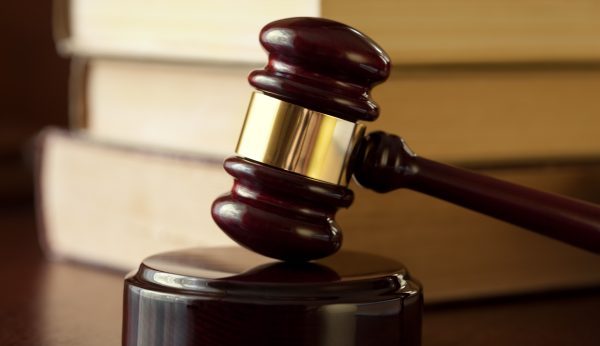Have you found yourself tangled in the web of the legal system, unsure of what lies ahead? Understanding pretrial motions can help demystify the court process and offer you some control over your legal battle. Pretrial motions are crucial tools within the legal process, offering defendants a chance to challenge aspects of the prosecution’s case before the trial even begins.
This blog post is designed to shed light on the world of pretrial motions, providing you with insights into their purpose, types, and significance. Whether you’re facing legal challenges yourself or simply keen to understand our legal system better, this guide aims to equip you with practical knowledge.
Pretrial motions are not just legal jargon; they are powerful instruments that can shape the outcome of a case. They allow defense lawyers to seek the dismissal of charges, change the trial venue, or suppress evidence that might violate a defendant’s rights. Understanding these motions and how they work is vital for anyone navigating the criminal justice system. In the sections that follow, we will explore various types of pretrial motions, their purpose, the filing process, and tips for defendants on effectively utilizing these motions.

Types of Pretrial Motions
When it comes to pretrial motions, there are several common types that defendants should be aware of. Each motion serves a unique purpose in the legal process, and understanding them can be pivotal in crafting a strong defense. Let’s explore some of the most frequently used pretrial motions and their significance.
Motion to Dismiss
One of the most powerful pretrial motions available to defendants is the motion to dismiss. This motion seeks to have the charges against the defendant dropped entirely. It is often filed when there is insufficient evidence, procedural errors, or violations of the defendant’s rights. For defendants, having a case dismissed before trial can be a game-changer, saving them from the stress and uncertainty of a courtroom battle.
Motion for Change of Venue
In certain cases, a fair trial may be at risk due to biases or prejudices in the local community. The motion for change of venue allows defendants to request a trial relocation to ensure impartiality. This motion is particularly relevant in high-profile cases where media coverage may have influenced public opinion. A change of venue can provide a fresh start and a more objective jury selection process.
Motion to Suppress Evidence
Evidence plays a critical role in criminal trials, but not all evidence is admissible in court. The motion to suppress evidence allows defendants to challenge the legality of evidence obtained by law enforcement. If evidence was gathered through illegal searches, coercion, or violations of the defendant’s rights, it can be excluded from the trial. This motion is a crucial tool in protecting defendant rights and ensuring a fair trial.
The Purpose of Pretrial Motions
Pretrial motions serve a variety of purposes in the legal process, each aimed at ensuring a fair and just trial. These motions are not mere formalities; they have a profound impact on the outcome of a case and the protection of defendant rights. Let’s explore the key purposes of pretrial motions and how they can influence the legal proceedings.
Ensuring a Fair Trial
The primary goal of pretrial motions is to safeguard the fairness of the trial. By addressing issues such as venue bias or inadmissible evidence, these motions help maintain the integrity of the legal process. Defendants have the right to a trial free from prejudice and conducted in accordance with the law.
Shaping the Case Narrative
Pretrial motions allow defense lawyers to shape the narrative of the case before it reaches the jury. By successfully dismissing charges or suppressing evidence, the defense can weaken the prosecution’s case and present a stronger argument on behalf of the defendant. This strategic advantage can significantly affect the trial’s outcome.
Protecting Defendant Rights
Defendant rights are at the core of the criminal justice system, and pretrial motions are essential tools for their protection. These motions provide a mechanism for challenging violations of constitutional rights, such as unlawful searches or coerced confessions. Upholding these rights is vital for ensuring justice and preventing abuses of power.
The Process of Filing a Pretrial Motion
Understanding the process of filing a pretrial motion is crucial for defendants navigating the legal system. While the process may seem daunting, it is essential to know how these motions work to effectively protect your rights and build a strong defense. Let’s break down the steps involved in filing pretrial motions and what defendants can expect along the way.
Filing Deadlines
Timing is critical when it comes to pretrial motions. Each motion must be filed within specified deadlines set by the court. Missing these deadlines can result in the forfeiture of the right to challenge specific aspects of the case. Defendants should work closely with their criminal defense lawyer to ensure all motions are filed promptly and accurately.
Responses and Court Decisions
Once a pretrial motion is filed, the prosecution has an opportunity to respond. The court then reviews both sides’ arguments and makes a decision. This process may involve hearings where lawyers present their cases, and the judge evaluates the merits of the motion. Court decisions on pretrial motions can have a substantial impact on the trial’s direction.
The Role of Legal Counsel
Navigating the complexities of pretrial motions requires legal expertise. A skilled criminal defense lawyer can assess the case, identify potential motions, and craft persuasive arguments. Defendants are strongly encouraged to seek professional legal counsel to maximize the effectiveness of pretrial motions and protect their rights.
Tips for Criminal Defendants
For defendants facing criminal charges, pretrial motions can be a powerful ally in the pursuit of justice. However, approaching them strategically is essential for achieving the desired outcome. Here are some valuable tips for defendants on how to effectively utilize pretrial motions in their defense strategy.
Work with Your Criminal Defense Lawyer
Building a strong defense requires collaboration between the defendant and their lawyer. Open communication and trust are vital in identifying potential issues in the case and crafting effective pretrial motions. Defendants should be proactive in sharing relevant information and discussing their concerns with their legal team.
Understand Your Rights
Defendants should take the time to understand their rights and how pretrial motions can protect them. Familiarizing oneself with the legal process and the specific motions available can empower defendants to make informed decisions. Knowledge is a powerful tool in the fight for justice.
Stay Informed and Engaged
Throughout the legal process, defendants should stay informed about their case and actively participate in their defense. Attending court hearings, asking questions, and seeking clarification can help defendants stay engaged and ensure their interests are represented effectively.
Conclusion
In the world of criminal defense, pretrial motions can be the difference between conviction and exoneration. Understanding their purpose, types, and the filing process is crucial for defendants seeking a fair trial and the protection of their rights. By collaborating with experienced legal counsel and staying informed, defendants can harness the power of pretrial motions to shape the narrative of their case and achieve a just outcome.
If you or a loved one are facing criminal charges, we strongly encourage you to seek legal consultation. An experienced criminal defense lawyer can provide valuable guidance and help you explore the potential of pretrial motions in your specific case. Remember, knowledge and proactive action are your best allies in navigating the complex legal landscape.
For more information on pretrial motions or court procedures in Indiana, don’t wait to reach out to a trusted legal advisor. Contact Attorney David E. Lewis at 317-636-7514 to speak with a seasoned criminal defense lawyer in Indianapolis, Indiana. Our law firm will obtain the best possible outcome for your criminal case!
Related Posts:
Pre-Trial Conferences in Indiana: A Guide for Criminal Defendants
Navigating the Legal Maze After Failing to Appear for Your Court Hearing
Top Tips for Indiana Criminal Defendants


